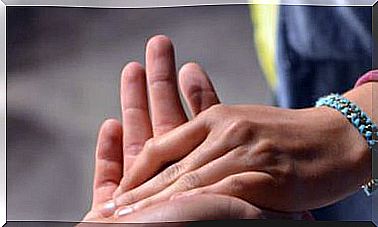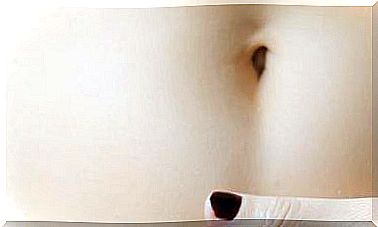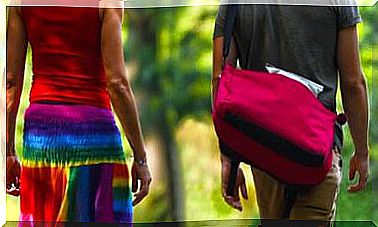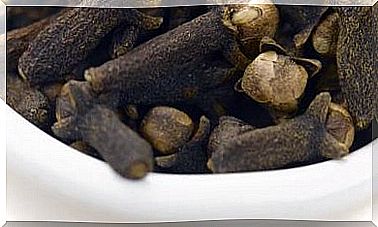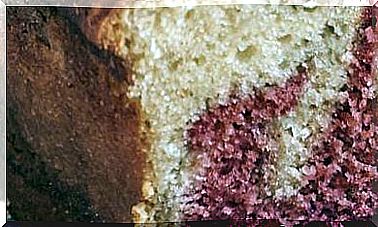“We Are Treating Animals Like Objects”
His research on chimpanzees was revolutionary. Today, Jane Goodall continues to fight to change our relationship with nature and animals.
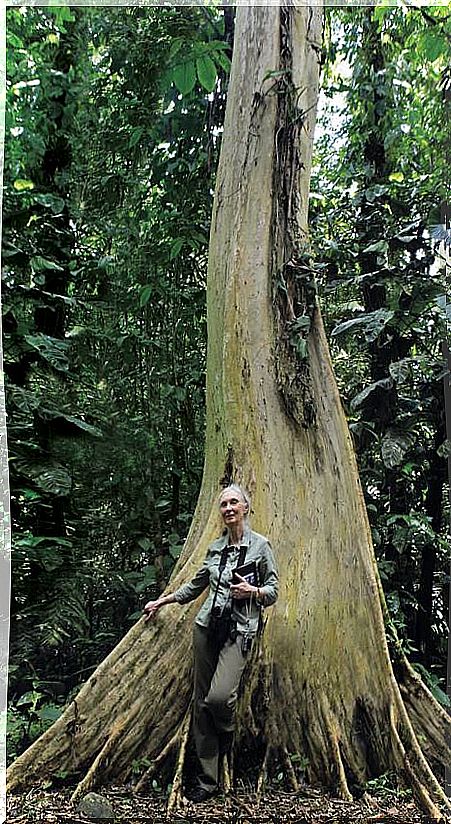
Jane Goodall speaks to us from her home, where she has been locked up since the beginning of the pandemic, forced to stop traveling as she used to and to make intensive use of new technologies, while she misses getting lost alone in nature. Right behind him, his great support: a photo of his mother as a young man next to Rusty, his dog, whose lessons were useful when observing chimpanzees in their natural habitat.
“One of the things that chimpanzees taught me was how arrogant humans can be to think that we are so different. As happened in Cambridge when I presented my study: they told me that I could not say that chimpanzees had personality, mind and emotions because that was unique and typical of the human being. But Rusty had already taught me otherwise and I was able to oppose the scientists, “says Jane Goodall, who at 86 years old visited 25 countries a year determined to invest until her last energy in saving the planet.
She was born in London in 1934, when women were not encouraged to fight for their dreams. But she, with the support of her mother, did. She traveled to Kenya, met the anthropologist Louis Leakey, worked for him as a secretary, and then he sent her to Gombe, Tanzania, to investigate wild chimpanzees with his clean, academic-free gaze.
In 1960, Jane settled with her mother and a cook near the chimpanzees. With patience he gained their trust and showed that human beings are not the only ones capable of creating and using tools. With the same perseverance he has fought for the preservation of these and other wild animals. She has been named an honorary doctorate in more than 45 universities and awarded the Prince of Asturias Award for Research in 2003, the Legion of Honor of the Republic of France, the title of Lady of the British Empire, the Hubbard medal of the National Geographic Society. and the Kyoto Prize, among others.
“People act more out of ignorance than cruelty”
-What else did chimpanzees teach you about humans?
-We can understand chimpanzees perfectly because they do and feel basically like us: they greet each other, kiss, hug, hold hands, pat each other on the back, males compete for dominance and put lips and faces of fury alike that some politicians that I do not want to name. Also, like us, they can become violent and brutal, or behave in a loving and altruistic way. We are related: we share 99% of the DNA sequence. And that’s why they are used in medical research. The main difference between them and us is our development of the intellect and ability to speak a language. Language allows us to talk to others about things without them having heard of them or without them being there, planning for the future and having a discussion. That is why it is so strange that, by being so smart, we are destroying our planet the way we are, a planet that is our only home.
-Can you find an explanation?
-The enormous disconnect between our intelligent brain and our heart, loving and compassionate. Because only when the head and the heart walk together can the true potential of the human being be accessed. When it comes to thinking and taking actions that will influence future generations, it is crucial that heart and head go together. But we decide based on what is beneficial to me today, or what benefits my next political campaign or my job, regardless of what it means for the future.
-Is the pandemic related to the way we treat animals and nature?
-Yes. It is the consequence of how we are relating to nature and the mistreatment we inflict on animals. As long as we continue to destroy nature to build roads and people hunt, kill and eat animals, and they have to leave their natural habitat to go in search of food, we are creating the ideal conditions for viruses and bacteria to jump out of an animal A person. In addition, we are trafficking in animals: they are caught and sold, we move them from one place to another and we take them to the meat markets in conditions of extreme cruelty. And to top it all, we are raising billions of animals for our food in horrible conditions. The farms have been classified as authentic concentration camps. We have to be aware that animals feel the way we do, be they cows or pigs. They feel fear, pain, grief and despair and each and every one of them has the right to have a life, because they are living beings. We are treating them as objects. If we don’t start respecting nature, prioritizing environmental protection over money and economic development, pandemics like the current one will continue to occur.
“If we are so smart, why do we destroy the planet, our only home?”
-Should we change our diet?
-The consumption of meat is an immense problem in the face of climate change. Intensive farming involves destroying the environment and large areas of forest to produce grain and feed animals. It also requires huge amounts of water, which increases water scarcity in many parts of the world. Then there is that animals, when digesting, produce a lot of methane, a very harmful gas for the planet. For all this we must stop eating meat and opt for a diet that is as vegetarian as possible.
-Are we in time to save ourselves?
-Many scientists warn that there is almost no time left. I believe, and I am not the only one, that there is a window of time and that, if we act together and begin to rethink our relationship with nature, we can cushion and slow down climate change. But it is not much time that we have and the window is closing. That is why I have been traveling 300 days a year, until the pandemic has locked me at home. Now I have created the “virtual Jane”, which works almost more than when traveling: I spend the day doing interviews on Zoom and Skype. That is also why I developed the Roots and Shoots educational program from the IJG, the Jane Goodall Institute. The world belongs to young people, it is their planet and we have left them a huge mess.
– “It is more important to reach people’s hearts than to argue with them,” you say.
-I can only change people by reaching their hearts and I do it by telling them stories. An example. When I learned how chimpanzees were treated in medical research, putting them in tiny cages, I was so traumatized that I couldn’t sleep. I wanted to see it with my own eyes. A laboratory let me in. Most animal rights advocates would have told scientists that they were cruel and unethical. I opted to show them pictures of chimpanzees in Gombe smiling at each other, sleeping and hugging, young people playing with each other, jumping between trees … Some of those scientists were touched by it. Many people do what they do because they haven’t thought about it, more out of ignorance than cruelty.
-Impathy and feeling identified makes us react …
-When I speak of not eating more meat I speak of ethical issues. Every time I see a piece of meat on my plate I think: “This symbolizes fear, pain and death.” That’s why I stopped eating meat. In our Western societies we are horrified by the idea of eating dog meat, but pigs are as intelligent or smarter than dogs, and the conditions in which they are raised are appalling. Instead of talking about how cruel it is to eat pork, I tell people about Pigcasso, a pig who lives in South Africa rescued from a slaughterhouse and has become an artist. Instead of showing them pictures of pigs in pain, I show what these animals really are like. Many people have told me. “I wish you hadn’t taught me this, I haven’t been able to eat bacon ever again.” It works!
“There is a huge disconnect between our intelligent brain and our loving heart”
-Can each person, with their individual actions, make a big difference on the planet?
-Each day we live leaves one impact or another depending on what we eat, what we buy or how we behave. We can choose what kind of impact we want to leave. But to make a difference it is necessary that we fight against poverty, because if you are poor you cut down the last tree to harvest and feed your family, or you buy the cheapest food without worrying about where it comes from. You can’t afford to think about it, you buy to survive. And to fight poverty we have to lower our standard of living.
-Your documentary Jane collects the death of Flint after the death of his mother. Can a chimpanzee die of grief?
-Yes. All the emotions that scientists usually attribute only to humans, animals also feel. A dog can visit every day the place where he saw his owner for the last time, for two and three years. Sometimes, when their owner dies, they refuse to eat. The emotion can be as intense as in us, or worse, because we can understand death more.
-Did being a woman influenced your way of investigating chimpanzees?
-No I dont think so. I think it was more definitive not having gone to university and that I always loved animals. Also having a mother who always supported me, and a dog, Rusty, with whom I had a wonderful relationship. No one had studied wild chimpanzees before. There was no method, so I did as when I watched the birds as a child: I sat patiently to wait for them to accept me at some point, and they did. Leakey later told me that he had not wanted a university student, because he did not want someone to go to the jungle to test a theory influenced by the reductionist vision of the scientists of the time.
-Especially at the beginning of her career, she did unusual things for a woman. Do you think women still have a glass ceiling?
-The role of women in the world has grown a lot since the first time I went to Africa. I never dreamed of being a scientist. Then it was unthinkable. The surprising thing was that my mother let me go. In fact, the British authorities did not allow a young woman to be left alone. My mother – surprisingly again – offered to accompany me. When young women ask me today what they are going to do in a man’s world, I answer: “If you feel that it is your passion, you will have to show that you can do as well or better than a man. But you should not care: just do it. Always. you will find someone to support your cause and it will get easier every time “.
“If we do not begin to respect nature, pandemics will continue to occur”
-In perspective, what impressed you most about the chimpanzees?
-I learned a lot from mothers, I learned how I should behave with my son. Chimpanzee mothers have a lot of fun with them, they play together in the trees, they tickle them and for a little chimpanzee it is crucial to have a loving mother, as my mother did to me. July 14 of this year marked the sixtieth anniversary of my first day in Gombe and we have found that females with a loving mother who supports them are better adult mothers and males achieve a better position in the hierarchy of the group.
-What do you feel when you are alone for so many hours in nature?
-I feel very connected to a great spiritual power, and all living things around me have a spark of that spirit, including me. It is wonderful: I forget that I am there, because I am also part of all that. That’s why I miss him so much. I try to go back to nature whenever I can. Those days that I lived alone in the jungle, day after day, were wonderful, the best of my life.
With her perseverance and empathetic gaze, Jane Goodall revolutionized ethology. A rag jumpsuit given to him by a blind person who did not give up on becoming a magician reminds him not to throw in the towel. “Mr. H. symbolizes the indomitable spirit of man, the idea that you should never give up, and also my reasons for hope: young people and the resilience of nature, capable of recovering if we give it time. Even animals on the edge extinction has a chance. This indomitable spirit prevents me from resigning myself to abandoning it, “he concludes. Today his seed grows with the action of each group of Roots and Shoots, but also with the path that their descendants have followed: his granddaughter is in the South African program and his grandson in Tanzania.
Don’t argue with people, reach their heart
“If you want to change people’s minds, don’t argue with them, reach their hearts,” says Jane, and she does so in her talks by conveying her enormous love for nature and animals. It is aimed a lot at young people, because “the planet belongs to them and we have stolen it,” he recalls.
Young people are, for the primatologist, the great hope. That is why the Jane Goodall Institute supports them through the Roots and Shoots educational program, which was born in 1991 in Tanzania with 12 students and today has 700,000 members in more than 50 countries. The groups talk about the environment and work on solutions, for example with reforestation campaigns and fighting poverty.
In Spain there are more than a hundred groups. “The Jane Goodall Institute in Spain is doing a great job. They have very good people at the helm and many volunteers. In Senegal they do a fantastic job; not only continuing research with chimpanzees, but also improving people’s lives,” he says.

